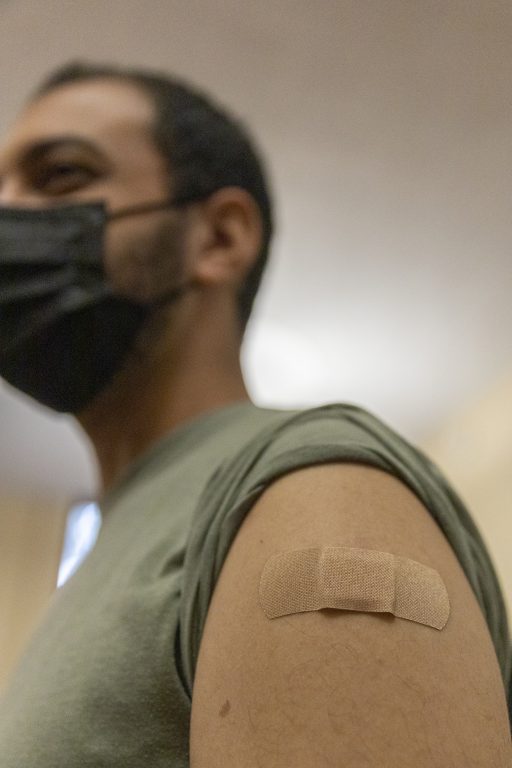Our best shot at a normal semester

By Jesse Berlin
For students who haven’t yet been vaccinated, MU Student Health & Well-Being will offer free COVID-19 vaccine clinics at the beginning of the fall semester.
The first opportunity for students to get their COVID-19 vaccine takes place 11 a.m.–1 p.m. Aug. 20 on the Lawn at Southwest, at the corner of Tiger Ave. and Kentucky Blvd.
The second opportunity is 11 a.m.–3 p.m. Aug. 24 and 25 in the MU Student Center.
Appointments are not necessary for these events, and the vaccines are offered at no charge.
Student Health & Well-Being is co-sponsoring the clinics with the Columbia/Boone County Department of Public Health and Human Services.
Student Health Center Medical Services Director Scott Henderson strongly recommends students get vaccinated ASAP if they haven’t already. “The COVID-19 vaccines are your best protection against getting sick from COVID-19,” he said.
“The more students, faculty and staff who are vaccinated for COVID-19, the sooner we will return to a more typical campus.”
Henderson is aware of misinformation surrounding the vaccines. For example, one rumor claims that the vaccines make people sick.
People may experience side effects, Henderson said, but these are temporary and indicate that the body is mounting an appropriate response to the vaccine.
Another common misunderstanding is that people who have had COVID-19 now have natural immunity against the disease.
“Mounting evidence suggests natural immunity may not last very long,” Henderson said. “Getting the vaccine will provide stronger protection.”
Yet another rumor claims that the vaccine could cause infertility in child-bearing individuals. Henderson said this is false.
“The myth is based on a belief that the vaccine may perhaps cause the body to attack a specific protein in the placenta that shares a small piece of genetic code with the spike protein of the coronavirus,” he said. “Our immune system is too sophisticated to mistake the proteins.”
Some people may be hesitant to get vaccinated because the COVID-19 vaccines were developed so quickly. However, the vaccines are safe and effective.
“Studies found that the two initial vaccines – Moderna and Pfizer – are both about 95% effective,” he said, adding that those studies also reported no serious or life-threatening side effects.
There are multiple reasons why the vaccines were developed so swiftly, Henderson said. For instance, the Pfizer/BioNTech and Moderna vaccines were created using the messenger RNA (mRNA) approach, a method that has been in development for years.
“The vaccine developers didn’t skip any testing steps,” Henderson said. “Over 340 million people in the United States have received COVID-19 vaccines under the most intense safety monitoring in U.S. history.”
Students who can’t attend the clinics can schedule appointments to get vaccinated at the Student Health Center any time after Aug. 30. Additional opportunities will be offered throughout the semester.